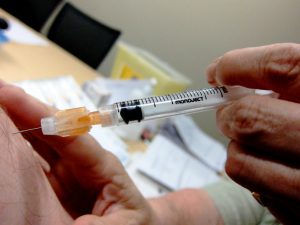On November 4, Nikkei Asia published an illuminating report about the Chinese government’s attempts to develop a COVID-19 vaccine and deploy it for strategic gain in Southeast Asia.
The article points out the advantages that China enjoys in vaccine development, in terms of its medical expertise and its ability to scale up production of vaccines, as well as the room for maneuver conferred by its successful containment of the disease. Most interestingly, it also provides some hints as to how China might use the leverage afforded by its possible production of a viable coronavirus inoculation.
In general, Southeast Asian nations, grappling with spiraling COVID-19 cases, have taken an eclectic approach to securing vaccine access, signing agreements with a range of international firms and governments. However, by virtue of its proximity and the aforementioned advantages, China has loomed prominently in states’ strategies for gaining access to a vaccine.
A good example is Indonesia, where the state-owned pharmaceutical firm Bio Farma is currently testing a new vaccine made by the Chinese company Sinovac Biotech. If successful, the vaccine will then be produced locally in large quantities. A similar arrangement is currently under negotiation in the Philippines. China has also promised Malaysia, Vietnam, Laos, Cambodia, Thailand and Myanmar priority access to Chinese-made vaccines. Moreover, on October 9, China announced that it was joining COVAX, a global initiative backed by the World Health Organization that aims to ensure the universal and equitable distribution of coronavirus vaccines. (The U.S. has so far not joined, making clear that its priority is vaccinating Americans.)
Last month, the Chinese state media network Xinhua declared that China would “not turn COVID-19 vaccines into any kind of geopolitical weapon or diplomatic tool.” But it is hard to see Beijing not using vaccines to foster goodwill, advance its interests and otherwise white out memories of its role in allowing COVID-19 to spread across the globe in the first place.
In particular, the Nikkei Asia article reported that Chinese Foreign Minister Wang Yi, during his visit to Kuala Lumpur last month, promised Malaysia priority access to Chinese vaccines. According to an anonymous Malaysian official, he then discreetly asked for the release of 60 Chinese fishermen detained for trespassing into Malaysian waters just days before his visit. According to Nikkei Asia, the Malaysian government is reportedly considering the request. While Wang’s demand for the release of detained Chinese fishermen is relatively modest, it offers some signs as to how the Chinese government will seek to use “vaccine diplomacy” to pursue its broader regional goals.
Of course, the real benefits to Beijing may be passive. There is a good likelihood that Southeast Asian nations that are facing spiraling COVID-19 caseloads and economic stagnation will reflexively avoid saying or doing anything that might anger the leaders in Zhongnanhai. Most worryingly, the Nikkei Asia article raises the possibility that bringing COVID-19 under control may require repeated doses of vaccines, on an annual or biannual basis. This would potentially make dependence on Chinese goodwill a recurring dynamic, rather than simply a one-off event.
This represents a turnaround from the early months of the pandemic, when many pundits and observers predicted that the disease might lead Southeast Asian nations to reduce their heavy reliance on China’s economy. Nearly a year later, with China appearing to have brought the disease under control while it rages uncontrolled in the United States and other Western democracies, it looks like the opposite could be true. Economic decoupling may be on the menu in Western capitals, but it looks a lot more difficult from the perspective of Jakarta or Bangkok.
While there are probably limits to how far Chinese leaders can press their advantage without provoking a backlash, the pandemic has clearly offered Beijing a once-in-a-generation opportunity to advance itself as a reliable – and inevitable – partner of Asian nations as they seek to recover from the pandemic. As Richard McGregor put it in his book Asia’s Reckoning, China’s policy toward Asia has long been underpinned by a simple message: “the U.S. presence in Asia [is] a geopolitical choice. China’s presence in Asia, by contrast, [is] a geopolitical reality.”

































